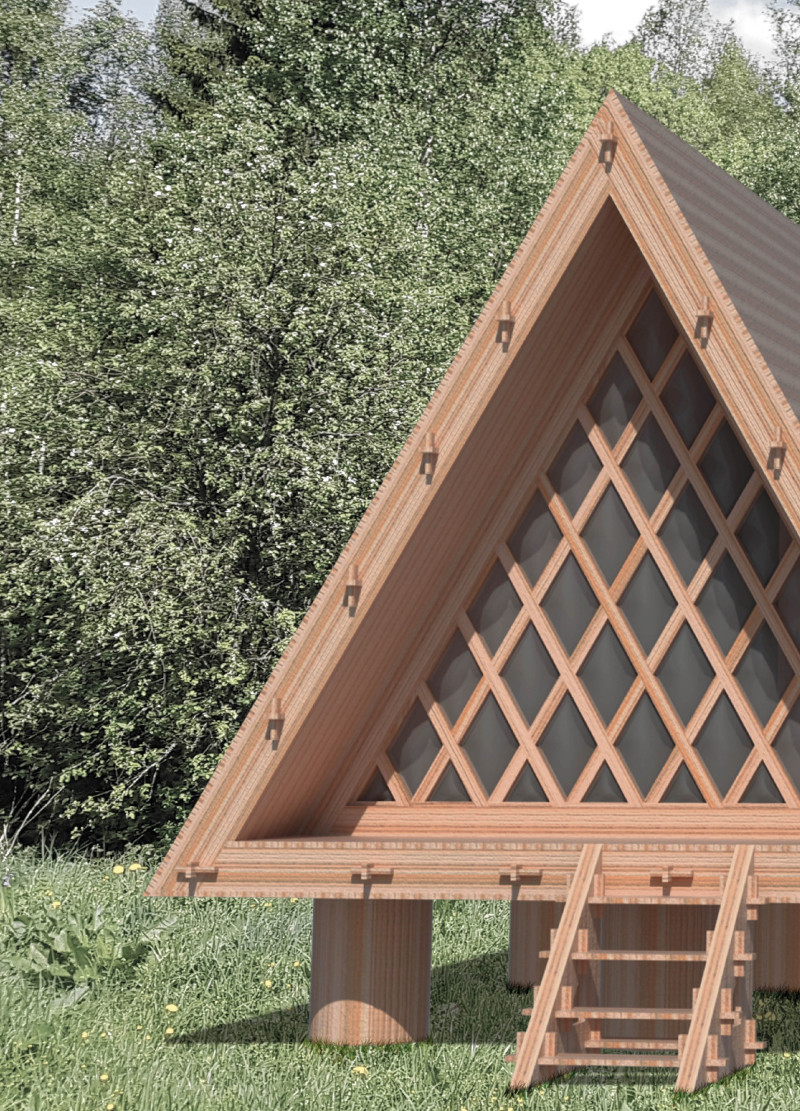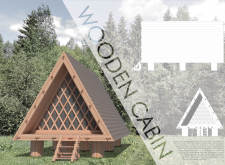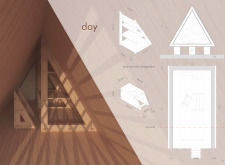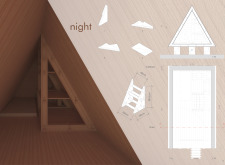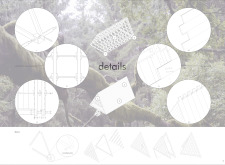5 key facts about this project
The wooden cabin is set in a tranquil environment that invites peaceful reflection and connection with nature. It serves as a retreat designed for meditation, emphasizing both simplicity and functionality. The focus on fir wood as the primary material creates an inviting atmosphere that blends with the surrounding landscape. The design principles prioritize minimalism, allowing the occupants to experience serenity away from the distractions of daily life.
Structural Integrity
The cabin's construction employs an interlocking technique that enhances stability while minimizing the use of traditional fasteners like nails and screws. This method creates a strong framework that maintains a clean, unified appearance. By taking advantage of the natural qualities of wood, the design achieves both a reliable structure and an aesthetic that aligns with its purpose as a place for quiet contemplation.
Light Management
Natural light plays a crucial role in the cabin's interior. The design incorporates inflated recycled-plastic pillows that facilitate light entry, offering an alternative to typical glass elements. This choice promotes sustainability by utilizing repurposed materials, contributing to a reduced ecological footprint. The soft illumination enhances the overall ambiance, making the indoor environment feel open and welcoming.
Multifunctional Spaces
Inside the cabin, furniture is crafted for dual functionality, allowing it to serve various purposes throughout the day and night. This thoughtful approach maximizes the use of space, creating a flexible environment that adapts to the needs of its users. The layout encourages relaxing moments while fostering a deep sense of connection to the natural world outside.
The cabin also features a small photovoltaic panel positioned on external flaps to provide energy-efficient lighting. This addition supports self-sufficiency and aligns energy use with ecological values. The careful combination of practical design elements and sustainable practices shapes a wooden cabin that provides a calm oasis for reflection and a better understanding of one’s surroundings.


